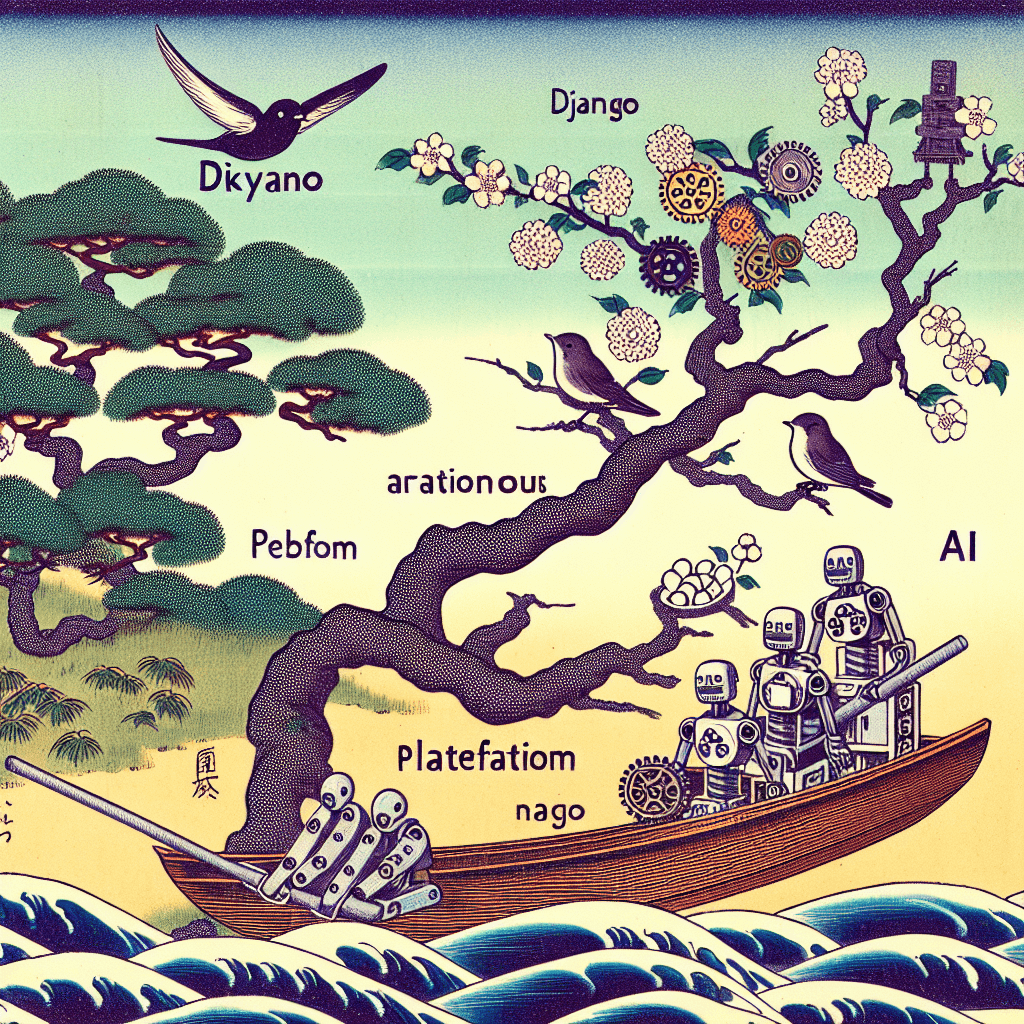

syndu | June 4, 2023, 1:07 a.m.

Introduction:
In a recent conversation, I came across a claim that Django, a high-level Python web framework, is the ideal platform for AI applications. While it's true that Django has several advantages, it's essential to critically examine these claims and consider the alternatives. In this blog post, we will analyze the arguments in favor of Django and explore whether it truly is the best choice for AI apps.
The first argument in favor of Django is that it's built on Python, a popular language for AI and machine learning...
Criticism 1: Python-based
The first argument in favor of Django is that it's built on Python, a popular language for AI and machine learning. While Python is undoubtedly a versatile language, other languages like R, Julia, and even JavaScript have gained traction in the AI field. It's essential not to overlook these alternatives when choosing a platform for AI apps.
Criticism 2: Scalability
Django is known for its scalability, but other web frameworks like Node.js, Ruby on Rails, and Flask also offer scalable solutions. Depending on the specific requirements of your AI app, one of these alternatives might be a better fit.
Criticism 3: Modular architecture
Django's modular architecture is a strong selling point, but it's not unique to Django. Many other web frameworks follow similar principles, allowing developers to create complex applications using reusable components. It's crucial to evaluate the modularity of other frameworks before settling on Django.
Criticism 4: Strong community and ecosystem
Django does have a large and active community, but so do other popular web frameworks. A strong community is essential for support and resources, but it's not exclusive to Django.
Criticism 5: Built-in security features
While Django's built-in security features are commendable, other web frameworks also prioritize security. It's important to compare the security features of different frameworks before making a decision.
Criticism 6: RESTful API support
Django's RESTful API support is excellent, but other web frameworks also provide robust support for building APIs. It's essential to consider the API capabilities of other frameworks when choosing a platform for your AI app.
Conclusion: Django's Strengths Outweigh Its Criticisms
After critically examining the arguments in favor of Django, it's clear that while there are alternatives, Django does offer several advantages that make it a strong contender for AI applications. Its Python-based nature, scalability, modular architecture, strong community, built-in security features, and RESTful API support are all valuable assets.
While it's essential to consider your specific use case and requirements when choosing a platform for your AI app, Django's strengths make it a suitable choice for many AI applications. Ultimately, it's up to you to weigh the pros and cons and decide if Django is indeed the best platform for your AI app.